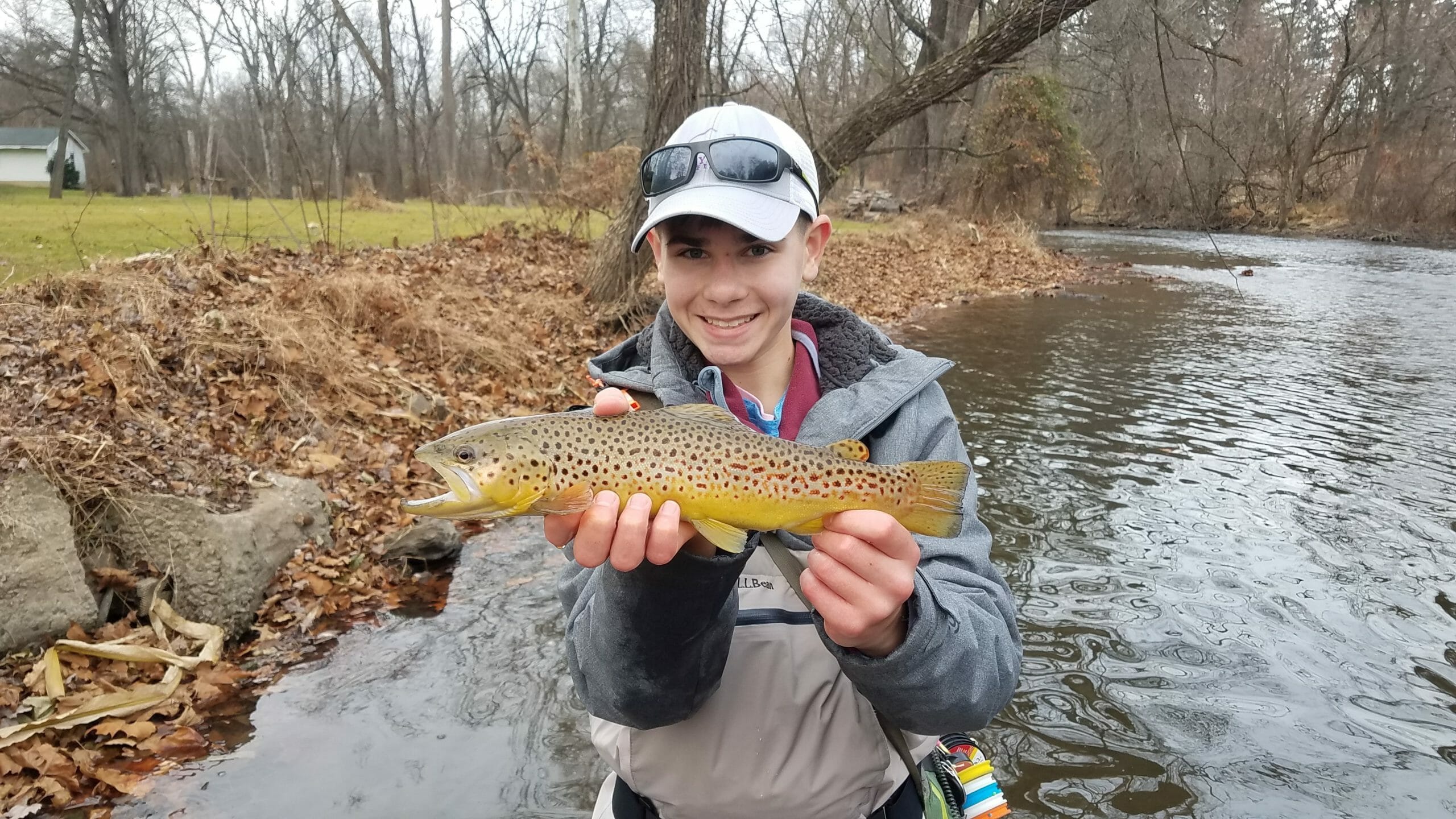Editor’s Note: Each year, participants at Trout Unlimited regional Youth Fly Fishing and Conservation summer camps are invited to enter the TU Teen Camp Essay Contest. The prompt for 2019 was “Why is conservation important to fly fishing?” We received many wonderful entries and are pleased to share the top five essays over the course of this week. To find a camp near you in 2020, visit www.tu.org/camps
By Justin Hardie — Honorable Mention
The week I spent last summer at New Hampshire TU Youth Trout Camp was phenomenal. I learned so much about fly fishing, fly tying and conservation. Our group conducted stream studies and collected stoneflies, caddis, mayflies, midges and terrestrials. I greatly enjoyed fishing every day and caught plenty of browns, rainbows and smallmouth bass.
As fun as the fishing was, more importantly, I learned that we need to keep our waterways clean and clear so that we and future generations can continue to enjoy fly fishing. Fly fishing isn’t only about catching fish. It is about living with nature and maintaining natural resources. NH Trout camp stressed that the future of fly fishing starts with today’s awareness and contribution to the conservation and preservation of all wildlife.
Everyone needs to do their part to keep their local watersheds clean and healthy. From picking up and disposing of small pieces of trash to helping rebuild a blown-out stream, there are always opportunities to improve our watersheds.
At Trout Camp, I learned there are several conservation groups dedicated to keeping our streams fishable through stocking and restoration efforts. After camp, I joined one of these groups, the Northern Virginia Chapter of Trout Unlimited. I have attended meetings, tied some flies that were donated to Wounded Warriors, participated in a fly-fishing adventure (where I out-fished almost all of the other participants) and have volunteered to help with stocking two of our local streams, Holmes Run and Accotink Creek.
With all the important education I have received from both NH Trout Camp and Trout Unlimited, I am focusing my efforts to preserve fisheries not only at my waterways but also at my fly tying desk.
I have improved all of my previously tied flies by squishing down any barb hooks that cause more damage to the delicate trout. All of the new hooks that I am using to tie now are barbless. Besides causing less damage to the fish, I have found barbless hooks to have another benefit. The barbless hooks almost always pop out automatically when netting the fish. I am also determined not to fish or tie with any lead products.
Instead of using lead split-shot, I am adding more weight to my flies with tungsten beads. These are more expensive, but safer for the water and for the fish if they end up swallowing them.
I also ensure that before I handle any trout that my hands are wet. Trout have a special slime on them and dry hands remove more of the protective slime that help the fish fight off infections.
NH TU Youth Trout Camp was not only a great learning experience for me, it was also the highlight of my summer. I met many new friends that share my same passion for fly fishing and the outdoors. All of the volunteers and guides were extremely knowledgeable and helpful. I even had the opportunity to learn the technique of swinging wet flies with Alan Karg, an amazing wet fly specialist. I really appreciate all of the time and work by the camp organizers and staff. I loved the opportunity to learn more about my passion of fly fishing and I look forward to camp next year. Thanks so much for the wonderful experience.
Justin is a member of the Northern Virginia Trout Unlimited Chapter and attended the New Hampshire Youth Trout Camp.



